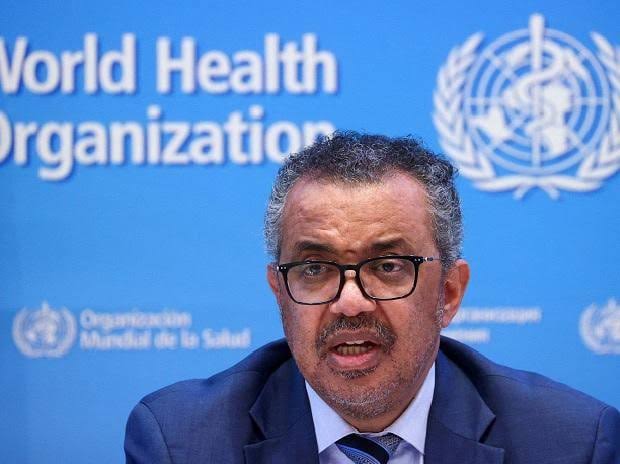The World Health Organisation (WHO) report says that 2.6 million deaths per year were attributable to alcohol consumption, accounting for 4.7 per cent of all deaths.
WHO, in a statement on Tuesday, said that alcohol consumption also accounted for 0.6 million deaths to psychoactive drug use.
According to it, notably, 2 million of alcohol and 0.4 million of drug-attributable deaths were among men.
“WHO’s Global status report on alcohol and health and treatment of substance use disorders provides a comprehensive update based on 2019 data on the public health impact of alcohol
“It also shows drug use and situation with alcohol consumption and treatment of substance use disorders worldwide.
”The report shows that an estimated 400 million people lived with alcohol and drug use disorders globally.
”Of this, 209 million people lived with alcohol dependence,” it said.
Dr. Tedros Ghebreyesus, WHO Director-General, said that substance use severely harmed individual health, increasing the risk of chronic diseases, mental health conditions, and tragically resulting in millions of preventable deaths every year.
“It places a heavy burden on families and communities, increasing exposure to accidents, injuries, and violence.
“To build a healthier, more equitable society, we must urgently commit to bold actions that reduce the negative health and social consequences of alcohol consumption and make treatment for substance use disorders accessible and affordable,” Ghebreyesus said.
According to him, the report highlights the urgent need to accelerate actions globally towards achieving Sustainable Development Goal (SDG) target by 2030 by reducing alcohol and drug consumption and improving access to quality treatment for substance use disorders.
Ghebreyesus said that the report highlighted that in spite of some reduction in the alcohol-related death rates since 2010, the overall number of deaths due to alcohol consumption remained unacceptably high.
He said that it amounted to 2.6 million in 2019, with the highest numbers in the European Region and the African region.
“The death rates due to alcohol consumption per litre of alcohol consumed are highest in low-income countries and lowest in high-income countries.
“Of all deaths attributable to alcohol in 2019, an estimated 1.6 million deaths were from noncommunicable diseases, including 474,000 deaths from cardiovascular diseases and 401,000 from cancer,” he said.
The WHO boss said that some 724,000 deaths were due to injuries, such as those from traffic crashes, self-harm and interpersonal violence. Another 284 000 deaths were linked to communicable diseases.
“For example, alcohol consumption has been shown to increase the risk of HIV transmission resulting from an increased risk of unprotected sex and by increasing the risk of TB infection and mortality by suppressing a wide range of immune responses.
“The highest proportion of 13 per cent of alcohol-attributable deaths in 2019 were among young people aged 23 years to 39 years.
“Total alcohol per capita consumption in the world population decreased slightly from 5.7 litres in 2010 to 5.5 litres in 2019,” he said.
According to him, the highest levels of per capita consumption in 2019 were observed in the WHO European Region (9.2 litres) and the Region of Americas (7.5 litres).
Ghebreyesus said that the level of alcohol consumption per capita among drinkers amounts on average to 27 grams of pure alcohol per day, roughly equivalent to two glasses of wine, two bottles of beer (33cl) or two servings of spirits (4cl).
He said that the level and frequency of drinking was associated with increased risks of numerous health conditions and associated mortality and disability.
“In 2019, 38 per cent of current drinkers had engaged in heavy episodic drinking, defined as consuming at least 60g of pure alcohol on one or more occasions in the preceding month.
“Roughly equivalent to 4 or 5 glasses of wine, bottles of beer or servings of spirits. Continuous heavy drinking was highly prevalent among men.
“Globally, 23.5 per cent of all 15–19-year-olds were current drinkers.
“Rates of current drinking were highest among 15–19-year-olds in the European region (45.9 per cent) followed by the Americas (43.9 per cent),” he said.
Ghebreyesus said that the effective treatment options for substance use disorders existed but treatment coverage remained incredibly low.
He said that the proportion of people in contact with substance use treatment services ranged from less than one per cent to no more than 35 per cent in 2019, in countries providing this data.
Ghebreyesus said that most of the 145 countries that reported data did not have a specific budget line or data on governmental expenditures for treatment of substance use disorders.
He said that although mutual help and peer support groups were useful resources for people with substance use disorders, almost half of responding countries reported that they did not offer such support groups for substance use disorders.
“Stigma, discrimination and misconceptions about the efficacy of treatment contribute to these critical gaps in treatment provision, as well as the continued low prioritization of substance use disorders by health and development agencies,” he said.
According to him, to accelerate progress towards achievement of SDG target and reduce the health and social burden attributable to substance use, governments and partners need to intensify actions in eight strategic areas.
“The areas are increase awareness through a coordinated global advocacy campaign, strengthen prevention and treatment capacity of health and social care systems, scale up training of health professionals and re-commit to the implementation of the Global Alcohol Action Plan 2022-2030 with a focus on the SAFER package.
”Others are accelerate international efforts on capacity-building and knowledge transfer, engage civil society organizations, professional associations and people with lived experience.
“Improve multi-level monitoring systems and corresponding research capacity; and scale up resource mobilization, allocation, and innovative funding mechanisms to strengthen capa
city of health and social systems,” he said.(NAN)











